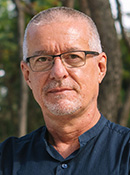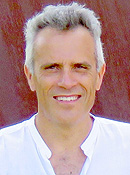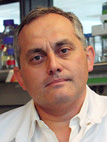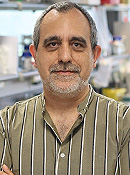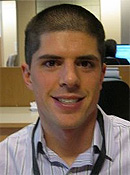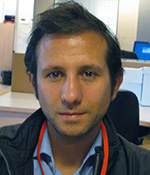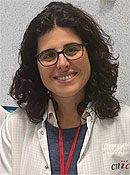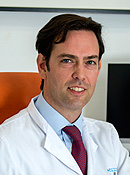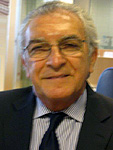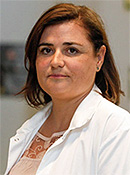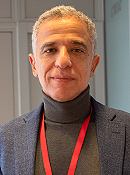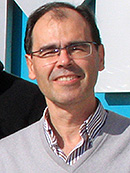Somos un equipo de científicos multidisciplinar que investiga cómo las fuerzas mecánicas determinan la función muscular a nivel molecular, celular, tisular y de organismo. Nuestra motivación es mejorar el entendimiento, diagnóstico y tratamiento de enfermedades musculo-esqueléticas y cardiovasculares. A la vez, formamos científicos, despertamos vocaciones en ciencia, y contribuimos a afianzar y difundir la cultura científica.
Las enfermedades cardiovasculares (ECV) son el principal problema sanitario y socio-económico en todo el mundo, en parte debido al envejecimiento progresivo que la población mundial está experimentando. La arteriosclerosis y la insuficiencia cardiaca contribuyen significativamente a la morbimortalidad relacionada con ECV en los ancianos.
Our laboratory’s main objective is to obtain a better understanding of how distinct signalling pathways control the different context-dependent behaviours of the diverse cell types that compose the vascular system and that are essential for new blood vessel formation.
Nuestro grupo de investigación se centra en el estudio de los mecanismos de formación de la aterosclerosis.
The Multidisciplinary Translational Research (MTCR) Group of CNIC is a platform for innovative knowledge generation in health and disease.
We study how signals and downstream genetic networks regulate heart development, aiming to understand congenital heart disease and cardiomyopathies, eventually guiding strategies for heart repair.
The interplay of cells and tissues with mechanical forces from their environment emerges as a novel key aspect of both organismal homeostasis and disease.
El grupo se centra en el estudio de las enfermedades cardiometabólicas, utilizando técnicas de imagen avanzada para comprender cómo los factores de riesgo cardiometabólicos afectan a los distintos órganos.
Nuestro grupo investiga los mecanismos moleculares que regulan la fosforilación oxidativa (OXPHOS), el principal sistema bioenergético de las células eucariotas.
Nuestro grupo está orientado en la prevención de las enfermedades cardiovasculares y la promoción de la salud. Trabajamos en programas multidisciplinares en estrecha colaboración con colegios y comunidades, dirigidos tanto a niños como a adultos.
The Advanced Development in Arrhythmia Mechanisms and Therapy (ADAM-T) laboratory focuses on investigating from a multidisciplinary approach, the mechanisms underlying cardiac arrhythmias that occur in highly prevalent cardiovascular diseases in the general population, as well as in specific subsets at particular risk of sudden cardiac death.
Our group has developed research applications for noninvasive, high-resolution and high-sensitivity imaging technologies to support translational research and population studies in preclinical atherosclerosis.
Nuestro grupo investiga la interacción entre el sistema hematopoyético y el sistema cardiovascular en el contexto de la enfermedad cardiovascular, con un interés particular en la fisiopatología de la aterosclerosis, la principal causa de infartos cardíacos e ictus cerebrales.
Nuestro laboratorio se centra en el estudio de enfermedades del miocardio que conducen a la insuficiencia cardíaca (IC) y la hipertensión pulmonar (HP) desde una perspectiva traslacional que abarca desde estudios moleculares y modelos experimentales hasta ensayos clínicos multicéntricos.
Nuestro enfoque se centra en el uso de modalidades de imagen para estudiar la salud cardiovascular y la transición al daño subclínico y la enfermedad cardiovascular establecida a lo largo de la vida.
Our group focuses on investigating from a multidisciplinary approach, the implication of genetics in cardiomyopathies. We perform translational research from humans to mice and look to improve how patients are diagnosed and treated.
Our laboratory is interested in innate immune cells. Macrophages, a major cellular component of innate immunity, are conspicuously present in most organs in which they are endowed with specialized phenotypes and functions that support normal tissue integrity. How they acquire these properties in certain organs, like the heart, is unknown.
Our group focuses on 2 main areas of interest: (1) the causes, mechanisms, and treatment of different types of myocardial injury; and (2) precision medicine strategies for the prevention of atherosclerotic cardiovascular disease (ASCVD) based on the identification of early silent disease.
Our laboratory investigates the cellular and molecular mechanisms of arrhythmias with the objective to generate novel treatments that can prevent sudden cardiac death.
Our lab studies the molecular mechanisms that regulate the development of heart failure.
Nuestro grupo estudia el potencial terapéutico y diagnóstico de las células T, sus receptores inmunomoduladores y los microRNAs, en el manejo de las enfermedades cardiovasculares (ECV) y en el desarrollo de herramientas de medicina de precisión.
El epicardio es una capa epitelial unicelular que recubre el miocardio. Se desarrolla a partir del proepicardio (PE), un grupo de células que se forman en el tracto de entrada del tubo cardiaco.
The interest of our group is cerebrovascular disease, one of the leading causes of death and disability, with an increasing prevalence due to the ageing of the population.
Formulation of drugs into nanoparticles can potentially improve their pharmacokinetics, stability and toxicity profile, thereby augmenting their therapeutic index. In addition, nanomedicines can be designed to selectively deliver their cargo to a specific tissue or cell population.
We are interested in various aspects of B cell biology and the antibody immune response, in particular in the context of atherosclerosis and cardiovascular disease.
El laboratorio de Regeneración del miocardio mediante la regulación del ciclo celular enlos cardiomiocitos se incorporó al CNIC en noviembre de 2022.
The Computational Systems Biomedicine Lab develops multimodal artificial intelligence approaches to advance biomedical research, with a particular focus on cardiovascular disease.
Nuestro laboratorio estudia las células dendríticas (DCs) y los macrófagos, centinelas clave del sistema inmunitario que regulan la inmunidad, la inflamación y la tolerancia.
We are interested in understanding the cellular and molecular bases of cardiovascular embryonic development and in finding ways to reactivate these mechanisms for the promotion of adult heart regeneration.
Our group works on the development of high-throughput quantitative approaches for the dynamic analysis of the deep proteome, which are being applied to basic and translational projects in the cardiovascular field.
Nuestro grupo está interesado en desarrollar nuevas terapias regenerativas para la insuficiencia cardíaca
La muerte súbita cardíaca (MSC) es una de las principales causas de mortalidad en los países occidentales. Por edades, en las personas mayores la enfermedad coronaria arterial es la mayor causante de la MSC, mientras que en individuos jóvenes la causa principal de la MSC son las enfermedades arritmogénicas hereditarias.

